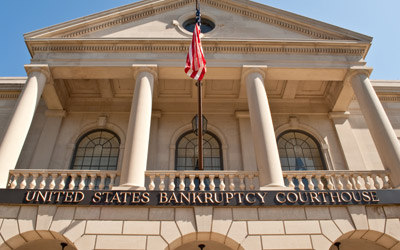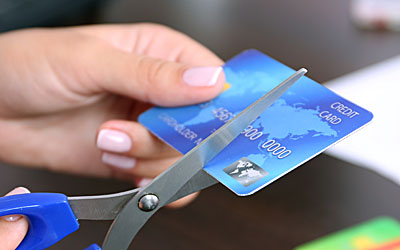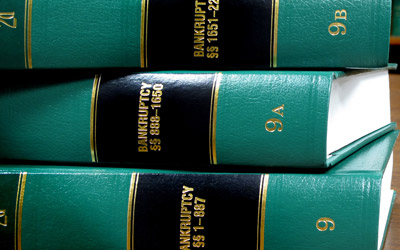FAQ'S
Obtaining Credit After Bankruptcy
1. Can I re-establish my credit after I file for bankruptcy?
Re-establishing credit after filing is a must for all New Jersey-ites. The fear of not having any credit in the future should not stop you from filing for bankruptcy. It is not easy to live in the modern world without having any type of credit. Nonetheless, sometimes bankruptcy is an absolute must to help you stop a foreclosure, repossession, or simply obtain a fresh financial start. Many New Jersey-ites who file for bankruptcy are very worried about the quality of their life after their case is closed. However, these fears are often unfounded. If you are determined, then most people can eventually fix their credit. It is not an easy process but it can be accomplished.
For whatever reason, many New Jersey-ites are under the mistaken believe that once they file for bankruptcy they will never get credit again. Almost all of them want to know how they will re-establish credit after bankruptcy. If you live in New Jersey and if have questions about obtaining credit after bankruptcy, then contact New Jersey Bankruptcy Center. We can provide you a free bankruptcy to determine your eligibility for bankruptcy. Moreover, we will answer any of your questions about obtaining credit after bankruptcy.
If you watch TV, read the newspaper, surf the internet, or listen to the radio, then you will notice countless advertisements that offer credit, even after filing for bankruptcy. As long as it is profitable, many companies will still extend credit to people who have filed for bankruptcy. Even with a bankruptcy on your record, many credit card companies, car dealers, and mortgage lenders are still willing to you extend you credit. However, there is a cost to obtaining credit after a bankruptcy. Although most post-bankruptcy credit comes at much higher interest rates, credit is still credit even at a higher interest rate. After a reasonable period of time, a bankruptcy filer who has obtained a discharge can reestablish a reasonable credit score. Millions of Americans have repaired their credit score. You can too!
It is an urban legend that filing for bankruptcy will prevent you from ever obtaining credit again. For the most part, this is misinformation that is spread by the credit card companies to try to scare the public. More specifically, the credit card companies try to spread misinformation to convince debtors not to file. Don’t listen to the ads by credit counseling companies that bankruptcy is a ten-year mistake. After a bankruptcy case is closed you will have a new lease on life. You are considered by many new creditors to have a lower credit risk, since you can’t file a chapter 7 again for another 8 years. Most lenders, finance companies, and the credit card companies are fully aware of this fact. Moreover, they are fully cognizant that if they extend credit to you, or lend money to you after you have filed, then you won’t be able to immediately discharge this new debt. Additionally, they know that your previous debts have been wiped out. Therefore, it is much more likely that you can afford to pay your new debts after a bankruptcy.
There is a price for everything in this world. Filing for bankruptcy is no different, and it has some serious drawbacks. Immediately after you file for bankruptcy the cost to obtain credit will become more expensive. You should be prepared to pay a much higher interest rates for credit cards and car loans. You may be able to limit the cost of high interest credit rates by paying off your credit cards in full at the end of every month. Moreover, you can pay down the principal of a car loan to reduce the amount of your payments. If you have a co-signer for a car loan, then this also will reduce your interest rates. However, obtaining credit after bankruptcy is not as difficult as you may believe.
2. What steps should I take to re-establish my credit after I have filed for bankruptcy?
A. Update Your Credit Report: You should obtain a copy of your credit report from all three credit bureaus. Thereafter, you should review your credit report to determine what negative marks are on it. These credit reports will all probably contain different sets of information. Thus, you need to make certain that each report is accurate. Moreover, you should make sure that your credit report reflects that your debts have been discharged. You should dispute any inaccurate info on the report. If there was a solid reason for your bankruptcy, such as a divorce, or sudden illness, then you should list it on your credit report. The credit reporting agencies allow you to include a statement which in turns gives potential creditors your side of the story. A personal statement on your credit report will not affect your credit score, and it may help if there is a judgment call to be made on extending you credit or obtaining new employment.
B. Open a Savings Account: If you do not currently have one, then you should open up a savings account and start making regular deposits to save an emergency stash. Try to open up a savings account with a credit union. Credit unions are believed to be much easier to establish credit with after a bankruptcy. Always keep your account in good standing with a credit union. Credit unions also offer car or home loans. In the future, it may be easier for you to obtain a loan with a credit union if you are a long standing member, then with a bank. You should also try opening a bank account with a local “home” bank. These types of banks may also be easier to establish credit with after bankruptcy as compared to a very large “mega” bank. Many potential lenders often look at your savings account and savings habits as one indicator of whether or not you can responsibly handle money.
C. Open a Checking Account: If you don’t have a checking account then you should immediately open up one. The checking account should also have a debit card feature that has a credit card logo. You can use the card to pay your bills and other expenses. This type of account allows you to pay for only what you can afford yet still be able to use your own money in the situations that usually require the use of a credit card. The use of a credit card is normally needed for a rental car, hotel room, or an online purchase. Even though a debit card won’t help you rebuild your credit, it may add credibility to your profile if you should apply for a loan in the future. Most lenders consider having both a savings and checking account to be a responsible financial decision.
D. Don’t Incur Any Additional Debts: Although this seems like a “no brainer” I have had many clients who have filed multiple bankruptcies in their lives. Many people don’t learn their lesson about controlling their debt the first time around, and they are forced to file bankruptcy several times. I always advise my clients to live within their means. Get rid of the wave runner. Do you really need a timeshare? Don’t rent movies at Blockbuster when you there more than 100 channels on local cable. You should always consider necessity over luxury. Don’t purchase a car that you can’t afford. The chances are that if you live in New Jersey you will get into a fender bender sooner or later. If you do incur any debts after bankruptcy, then they should be incurred only as a necessity and only after careful consideration.
E. Pay Your Mortgage or Rent on Time: If you are renter then you should pay your rent payments on time. In the future you may have to rely on your landlord as a credit reference for another lease. If you have been able to keep your home in a chapter 7 then you should continue make your payments on time. If you have late payments on your mortgage after a filing, then this will ruin any chance for you to rebuild your credit report. It is important to emphasize that late payments are reported to the credit bureaus, and they will nuke your credit score
F. Apply for a Secured Credit Card: Some banks may be more willing to give you a secured credit card after a bankruptcy rather than providing you with a standard credit card. In a secured credit card you can deposit money into a special account with the bank. The bank in turn then issues a credit card with a limit equal to the amount that you deposited. Make certain that the bank will report your good payment history to the credit bureaus. These are no-risk deals for the banks because if you don’t pay as agreed they will take the money from your deposit. If you handle a secured credit card reasonably well, then your credit limit may be increased above the amount deposited, or it may someday become an unsecured account. If you were able to retain a credit card through your bankruptcy, then you should use it every once in a while for purchases. Therefore, you should pay off any balance at the end of the month. If you pay off your balances promptly, then this information will also be reported to the credit bureaus.
G. Apply for a Retail Store Account: Sometimes small department stores, appliance dealers, and furniture stores offer credit, especially if you put down a significant down payment. It may not be a bad idea to purchase something at Best Buys, Sears, etc. solely for the purpose of establishing credit, or to obtain a credit reference. Before opening a retail store account you should make sure that the merchant will report your timely payments to the credit bureaus.
H. Live Within Your Means: You should set up a strict and reasonable budget and live with it. Make responsible choices when comes to purchases, and don’t over extend yourself. If you don’t have the money to purchase something then don’t buy it. You should limit your purchases to only what you need. Moreover, you should try to save money as opposed to spending it. In simpler terms you should live within your means.
I. Don’t Apply for Credit More Often than Every Six Months: If you apply for a loan, a retail account, credit card, or credit limit increase and get turned down, then you will need to continue to continue to reapply. Every time that you apply for credit your credit score will go down a few points. Any re-applications for credit cards or loans that have been declined can severely affect your credit score. Credit inquiries can stay on your report for up to two years. Therefore, any potential creditors who review your credit report, will see multiple inquiries and repeated credit applications on it. This can be a red flag to many potential credit providers. You should take your time and be patient as credit will improve over time. If you do apply for credit and get turned down you can request that the potential creditor provide you an explanation as to why you were denied. Moreover, you can request what can be done to improve your chances for approval in the future.
There is credit after bankruptcy. However, given the recent collapse of many banks, it is not as simple to file bankruptcy today, and then to re-establish good credit tomorrow. Re-establishing credit after you have filed for bankruptcy is a gradual process. Fixing your credit takes time, discipline, and common sense. Bankruptcy is not the end of your credit life. The bottom line is that you can establish and rebuild your credit after you file for bankruptcy.
Although filing for bankruptcy may not be for everyone, it may give you the fresh start that you desperately need. The fear of not having any credit in the future should not stop you from filing if you need to. Stopping foreclosure, repossession, or a garnishment may help you to obtain peace of mind and a fresh start in the Garden State.






